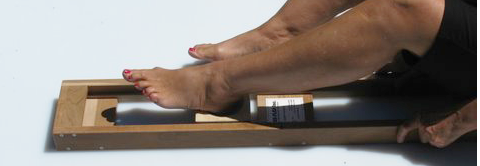Tmj Cause Dizziness

Temporomandibular joint (TMJ) disorders have been a subject of increasing interest in the medical community due to their complex and multifaceted nature. One of the lesser-known but significant symptoms associated with TMJ disorders is dizziness. The connection between TMJ issues and dizziness may not be immediately apparent, but understanding the anatomy and function of the TMJ, as well as its relationship to the body’s balance and equilibrium systems, can provide valuable insights.
The TMJ is a complex joint that connects the mandible (lower jawbone) to the temporal bone of the skull. This joint is responsible for facilitating movements such as opening and closing the mouth, chewing, and speaking. The TMJ is also intricately linked with the muscles of mastication (chewing), the facial nerves, and other structures that play crucial roles in maintaining the balance and posture of the head and neck.
Dizziness, or vertigo, is a condition characterized by a sensation of spinning or feeling like the environment around is spinning or moving. It can significantly impact an individual’s quality of life, causing discomfort, nausea, and difficulties with balance and coordination. While dizziness is commonly associated with inner ear problems or issues with the vestibular system, which is responsible for balance, the connection between TMJ disorders and dizziness suggests a more complex interplay between different bodily systems.
Several mechanisms have been proposed to explain how TMJ disorders could lead to dizziness:
nociceptive and inflammatory mechanisms: Pain and inflammation in the TMJ can stimulate nociceptors (pain receptors) in the joint and surrounding muscles. This stimulation can lead to the activation of certain pathways in the brain that are also involved in processing balance and spatial orientation information, potentially contributing to feelings of dizziness.
Trigeminal nerve involvement: The trigeminal nerve, which is the fifth cranial nerve, plays a crucial role in facial sensation and motor functions, including those of the TMJ. This nerve also has connections with the vestibular system and the brainstem, areas critical for balance. Irritation or dysfunction of the trigeminal nerve due to TMJ disorders could potentially affect vestibular processing, leading to symptoms of dizziness.
Postural and cervical spine considerations: Individuals with TMJ disorders often exhibit altered postures of the head and neck, potentially as a compensatory mechanism to reduce discomfort or pain. These postural changes can affect the cervical spine and lead to strains on the muscles and ligaments, which in turn can irritate the proprioceptive nerve endings. Proprioception is the sense of the relative position of neighboring parts of the body, and disturbances in proprioceptive input from the neck can contribute to balance problems and dizziness.
Stress and anxiety: TMJ disorders can be associated with significant psychological stress and anxiety, which are known to exacerbate symptoms of dizziness. The emotional impact of living with chronic pain and discomfort can further complicate the clinical presentation, making diagnosis and treatment more challenging.
Given the complex relationship between TMJ disorders and dizziness, managing these conditions requires a multidisciplinary approach. Healthcare professionals, including dentists, ENT specialists, physical therapists, and sometimes psychologists, may need to work together to address the patient’s symptoms comprehensively.
Treatment strategies may involve:
- Physical therapy: To address issues related to postural imbalances, muscle tension, and proprioception.
- Pain management: Utilizing various methods to reduce pain and inflammation in the TMJ, such as analgesics, anti-inflammatory drugs, and injections.
- Dental treatments: Occlusal adjustments, dental splints, or orthodontic treatments to correct bite problems that may be contributing to TMJ strain.
- Vestibular rehabilitation therapy: For patients where vestibular dysfunction is suspected to play a role in their dizziness.
- Psychological support: Stress management techniques, such as cognitive-behavioral therapy or mindfulness, to help patients cope with the psychological aspects of their condition.
In conclusion, the association between TMJ disorders and dizziness highlights the intricate connections within the human body and the need for a holistic approach to healthcare. While the exact mechanisms linking these two conditions are still under investigation, recognizing the potential relationship can lead to more effective diagnosis and treatment of patients suffering from these debilitating symptoms.
Can TMJ disorders cause permanent damage leading to chronic dizziness?
+While TMJ disorders can lead to chronic symptoms, including dizziness, the likelihood of causing permanent damage that results in chronic dizziness depends on various factors, including the severity of the condition, the effectiveness of treatment, and individual differences in healing and adaptation. Early intervention and comprehensive management can significantly reduce the risk of long-term complications.
How can I distinguish between dizziness caused by TMJ disorders and other causes, such as inner ear problems?
+Distinguishing between the causes of dizziness requires a thorough medical evaluation. If your dizziness is accompanied by jaw pain, clicking or locking of the jaw, and facial pain, TMJ disorders might be a contributing factor. Consulting with healthcare professionals, including dentists and ENT specialists, can help determine the underlying cause of your dizziness through diagnostic tests and physical examinations.

